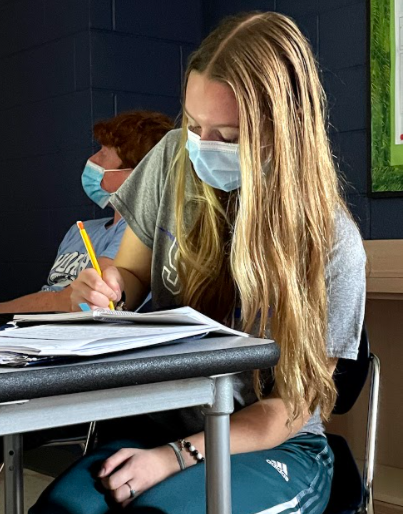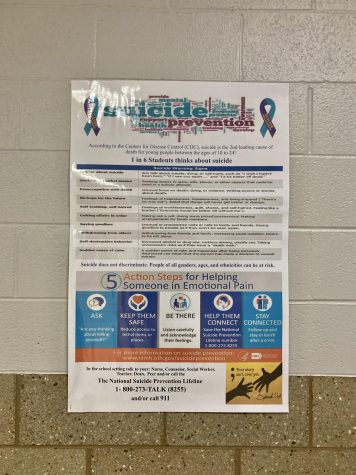The State of Student Stress Levels

Students’ coursework can contribute to their worry
October 1, 2021
Many students have reported increased levels of stress due to the unusual nature of the past two school years caused by the COVID-19 pandemic. COVID-19 has changed many things about how school has functioned, such as being remote and hybrid throughout the last year. COVID-19 has also made it harder for students to look at colleges which can add to student stress levels.
Stress has impacted students differently over the past year and a half but many students have struggled with at least some.
“I think one of the challenges of just being a human being is, stress can come from anywhere at any time,” said Scott Von Essen, English teacher.
One of the biggest stressors for students has been time management and dealing with lots of coursework. Student’s course load, jobs, sports, and other activities can affect time management.
“Probably homework just because it’s senior year so they just put the hardest stuff on you,” said Julia O’Leary, senior. “So I guess just a lot of homework is really annoying. And then having a job on top of that, just like trying to balance time is really stressful.”
Having a full day of classes can also add to a student’s stress levels and make it harder for them to manage time.
“I’ve had students in the past who have made decisions like not having a study hall or a lunch, and so they just have a straight day of academics,” said Von Essen. “And those students oftentimes are stressed and are struggling with their time management because they don’t have time during the day to give their brain a break or time during the day to take care of a lot of the work that they have.”
Transitioning back to full-day in-person school has caused stress for some students after having shortened days and constantly changing schedules last year.
“Some of those students who kind of thrived last year maybe are experiencing some stress this year now that it’s back to eight periods a day instead of four periods. Now that we’re back to, you know, a legitimate school day from 7:20 to 2:20,” said Von Essen.
The transition back to school has been especially difficult for students who were fully remote all of last year.
“It was really stressful the first day of school because I had been online all year, but now that we’ve kind of been here for a while, it’s fine,” said O’Leary.
An additional stressor for upperclassmen is looking at and applying to colleges.
“It’s the beginning of the school year and transitioning [back to school] was stressful so now having to deal with the college application process is just really adding on to it,” said O’Leary.
However, there are many supports at North that are always willing to talk to students. School psychologists, social workers and guidance counselors are available to help students talk through any problems they may be having.

“[How we help] depends on the situation. So sometimes we’ll just talk through their problems and other times we’ll give them resources on how to deal with stress,” said Amy Ford, guidance counselor.
One thing that has been helping students with their stress is going back to a normal school schedule.
“ I think in a lot of ways, there’s maybe more relief this year, that maybe things are a little bit more predictable and a little bit more normal,” said Von Essen.
Many students are happy that activities they missed out on last year are returning.
“The things that I hear people kind of reflect on this year is like what they missed last year that they’re happy is in place this year,” said Von Essen.





